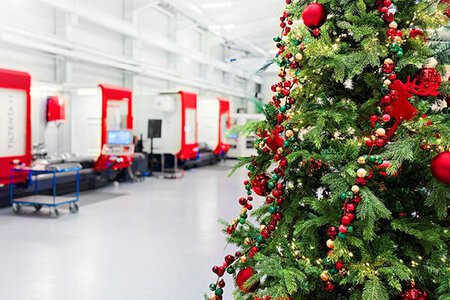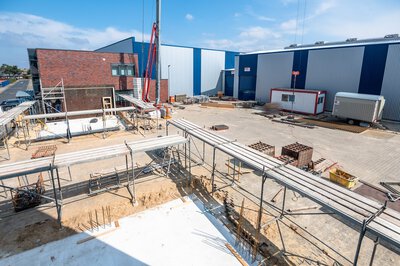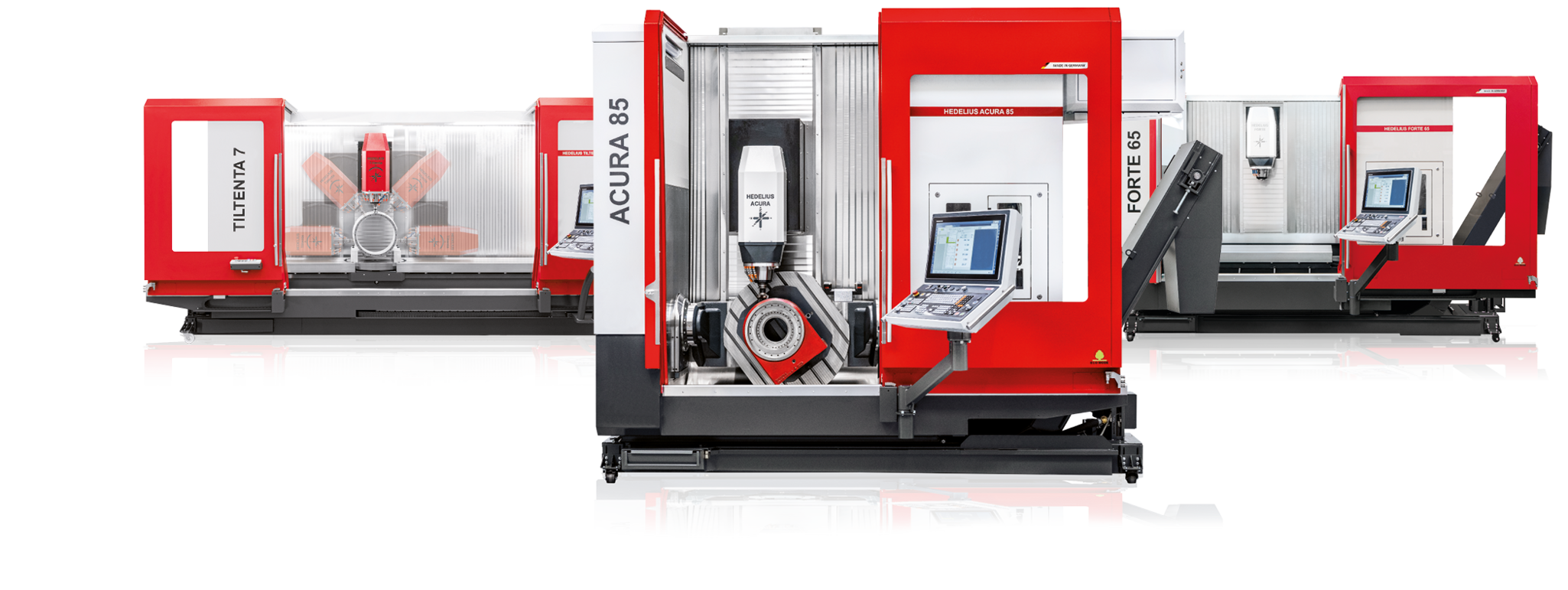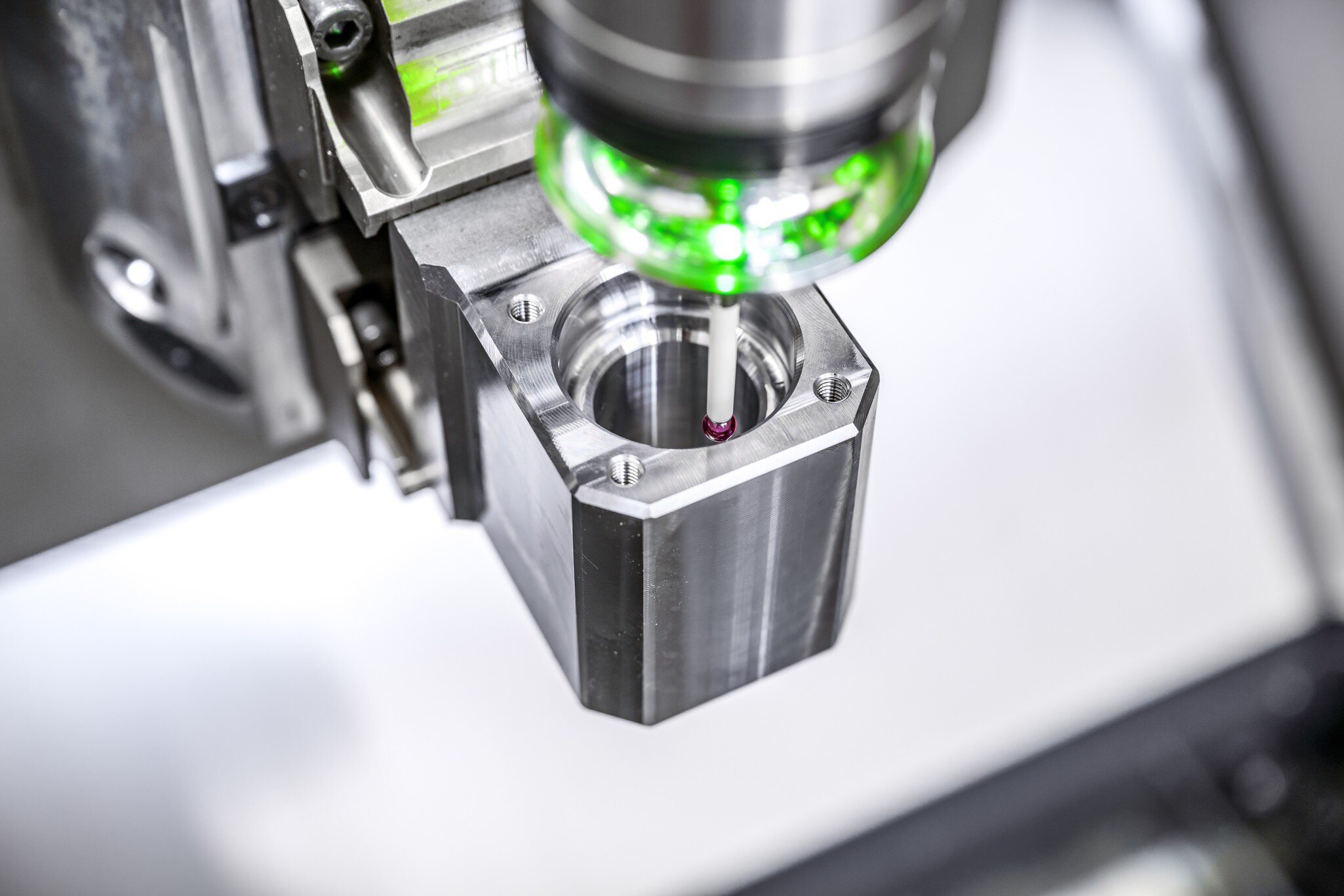08 May 2020
HEDELIUS invests as planned.
Expansion of office capacity at the company headquarters in Meppen by 650 square metres.
Despite the coronavirus crisis, HEDELIUS Maschinenfabrik considers itself to be well installed, meaning that both product developments and investments in infrastructure are continuing as planned. The company is currently expanding its office capacity at its headquarters in Meppen by 650 square metres. The new premises are scheduled for completion in autumn and will primarily provide a modern working environment for sales, marketing and customer service.
In the product development range, HEDELIUS is currently in the process of further expanding the automation of its CNC machining centres in order to offer customers optimum technical solutions for flexible, highly productive and high-precision manufacturing. "In this way, we want to continue our growth trajectory of recent years," says Managing Director Dennis Hempelmann. "In order to continue to provide our customers with good advice, we are currently offering virtual machine demonstrations via livestream, which has been very well received. We are currently able to present 14 machining centres and four automation solutions for our compact ACURA machines to customers and interested parties live under chip in detail. Virtual live stream with one of our CNC experts. However, we also look forward to every 'real' visit to our demonstration centre in Meppen. We also offer this opportunity, naturally in compliance with all applicable hygiene regulations."
More news.

We will be on company holidays from 24 December 2025 to 2 January 2026. Please note that our customer service and sales department will only be available to a limited extent during this period. We will process your enquiries as soon as possible after our return. Further information on contact options and the availability of our customer service and sales team can be found here.

(PDF | EN) Automate your HEDELIUS machining centre with the innovative RoboJob systems and increase your productivity around the clock. Whether small series, medium quantities or unmanned night production: with the Mill-Assist and Tower systems, you can work more economically, reduce downtimes and ensure the long-term competitiveness of your production. Download the free "RoboJob automation for HEDELIUS" folder now and find out how you can upgrade your machining centre to a smart automation solution in just a few steps.

Our HEDELIUS in-house exhibition on 14 and 15 May 2025 was a complete success - and we owe this above all to you! A big thank you to the numerous visitors, but of course also to our dedicated employees and our strong partners. The personal exchange with our guests, inspiring conversations and new impulses made the two days in our technology centre a real highlight.
Take a look back at this successful event with our event video and the impressions in pictures!











































































































































